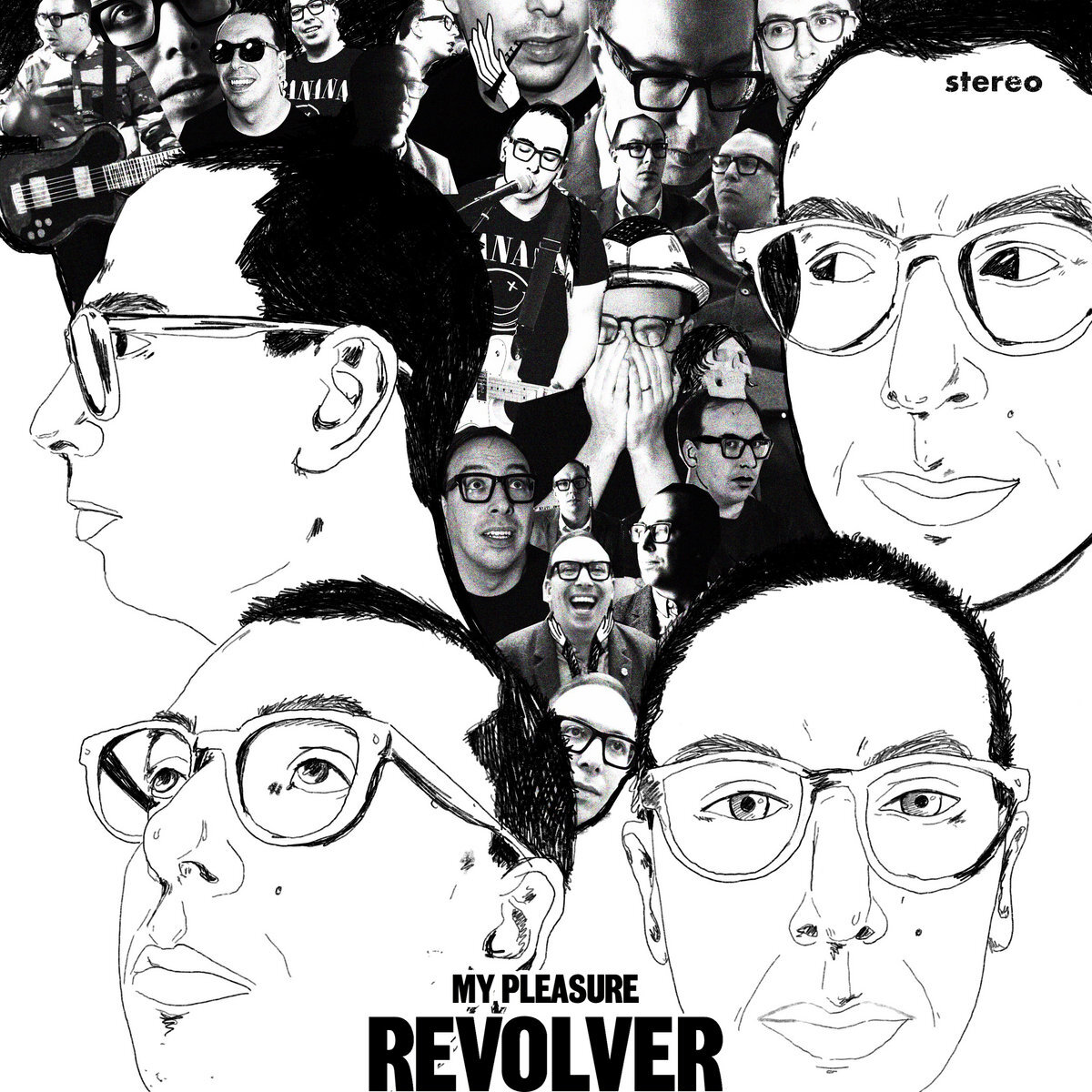Our Spilt Milk: Reviving "Revolver," Billie Begging Off, Old Clean & New Stereolab

Our favorite things this week include new music from My Pleasure, old music from The Clean, and Billie Eilish at the Grammys.
For me, recorded covers can’t be radical enough. If they don’t show me something or provide a valid alternative to the original, I don’t care. Indie artist My Pleasure’s new remake of The Beatles’ Revolver certainly meets both of those criteria, and it gets bonus points for taking on The Beatles. It’s not that I’m against them; I’m simply on the side of artists making bold choices like revising the greats.
My Pleasure remakes the British track list song by song, and the results can be glibly shorthanded as Teenage-Fanclub-Meets-“Warm-Leatherette.” The album splits not quite evenly between guitar-first versions and electronic, minimal versions, though neither mode forgets that these are pop songs. Since the latter are more transformative and instructive, they’re my favorites, particularly the Suicide (minus the urban dread) take on “Doctor Robert” and electro-boogie “Got to Get You into My Life.” On the guitar side, I’ll also return to “Yellow Submarine,” which is melodically reshaped into a haunted sea shanty. These tracks, like many on the album, remind you how bulletproof Lennon and McCartney’s compositional skills were at this point.
I am, however, nagged by My Pleasure’s dispassionate singing. Since The Beatles sang everything—including the original “Yellow Submarine”—as if the words really mattered, turning down the heat on the vocals feels like a cop-out and a way to lower the stakes. There’s no denying that the undersold vocals make musical sense much of the time and emotionally work on “For No One” and “Here, There, and Everywhere,” but the deliberately uninflected delivery often suggests that the words don’t matter.
And maybe they don’t. Or not as much as we’ve been encouraged to believe. I didn’t buy itnwhen a high school English teacher had us break down “Elenor Rigby” as a poem, and “Doctor Robert” certainly documents the lives of the wasted and wealthy more than it conveys an enduring nuggets of cultural wisdom. The fact that this Revolver makes me think about things like this keeps me coming back to it, despite my ambivalence about the vocals. (Alex Rawls)
While the Grammys were very different this year, one thing stayed the same: Billie Eilish’s desire not to win. Eilish swept the major Grammys last year by winning five awards and famously mouthing, “Please don’t be me, please… Noooooo” when called for her final award of the night. In her award speech, she said she wished Ariana Grande’s thank u, next had won. This year was no different. Eilish spent her entire award speech for Record of the Year praising fellow nominee Megan Thee Stallion and explaining why she deserved the award.
This type of behavior seems consistent with Eilish’s notice me/don’t notice me persona. Had she truly not wanted the attention, she never would have shown up at the Grammys, dyed her roots neon green, or entered the pop world in the first place. At the same time, she sings with a distinctively haunting, whispery tone, wears clothing that covers her body almost entirely, and deflects major awards, seeming to shy away from attention. That presentation sets her apart from a generation of upbeat, belting female artists with over the top costumes, and it makes her more relatable. In interviews, she’s discussed her childhood obsession with Justin Bieber, The Office and many other things young women hear as mirrors of their own adolescent experiences.
Seeing Eilish divert this major attention off herself two years in a row feels authentic and relatable too. Many young women take pride in their work but are uncomfortable when placed in competition with other women. Superstars feel out of reach of their fans, but Eilish bridges this gap with her No, not me again attitude while keeping herself musically relevant.
And for my money, while Eilish may deflects her awards, she deserves every single one. (Jillian Fontana)
Simplicity works in The Clean's favor on 1990's Vehicle. The 28-minute debut album is essentially two bundles of melancholic jams that string themselves together with their driving tempos and similar keys, interspersed with a few acoustic breathers. The band embodied the “Dunedin sound” in New Zealand with their hypnotic, post-punk cadence and occasional toy organ spotlighting. But the jangly guitar strumming and loose, punky vocals of brothers Hamish and David Kilgour are at the core of their debut. Their less-is-more approach to chords results in an emotional directness on Vehicle that quenches your “happy and sad at the same time” thirst any day of the week.
Not every cut on Vehicle rides a bittersweet wave. "Bye Bye" and "Big Cat" steer things in a strange, distinctly Dunedin direction, cranking up the off-kilter toy organ with chords and vocals that at times sound sarcastic. The folkier tunes are stripped all the way down to a 12-string and vocals. Their slow pace lets you stretch your legs at the end of each half of the album, and at times they lean distant and cold, like on "Home" when Hamish and David's disembodied vocals repeat, "I wanna go home. Do you think I will? Do you think I can?" The Clean mix these contrasting concepts into a package about as subtle and streamlined as ‘90s indie gets. The brisk 13 tracks of Vehicle come together as a singular well-oiled machine of New Zealand jangle. (Andreas Jahn)
I’m sure not all Stereolab albums sound the same, but that’s how I remember them. Their politically charged combination of lounge, stereo test records, indie rock, and synth pop is 100 percent my thing, but getting more of their music feels redundant sometimes. When I listen to one Stereolab album, I feel like I already have it, only the songs have different titles, different tempos and different keys.
Still, I impulsively waded back in for the new Electrically Possessed: Switched on Volume 4, a collection of singles, EPs, and stray tracks from a 10-year period from 1999 to 2009. All my doubts remained while listening to it, but so did the excitement that accompanied a new Stereolab album because the tracks seem magically ephemeral. The songs are engrossing while they’re on, but since they’re variations on a theme, they also evaporate the moment they leave your ear. Textures are everything, and it’s only Moog squelches or electronic buzzes that separate one attractive, circular melody—often sung in French—from another.
In such heavy times, that light, almost fleeting presence is welcome. There was a time when their evocations of Muzak—deliberately unobtrusive background music—was post-modern and an artful transformation; now, it’s simply welcome. (Alex Rawls)
Creator of My Spilt Milk and its spin-off Christmas music website and podcast, TwelveSongsOfChristmas.com.






